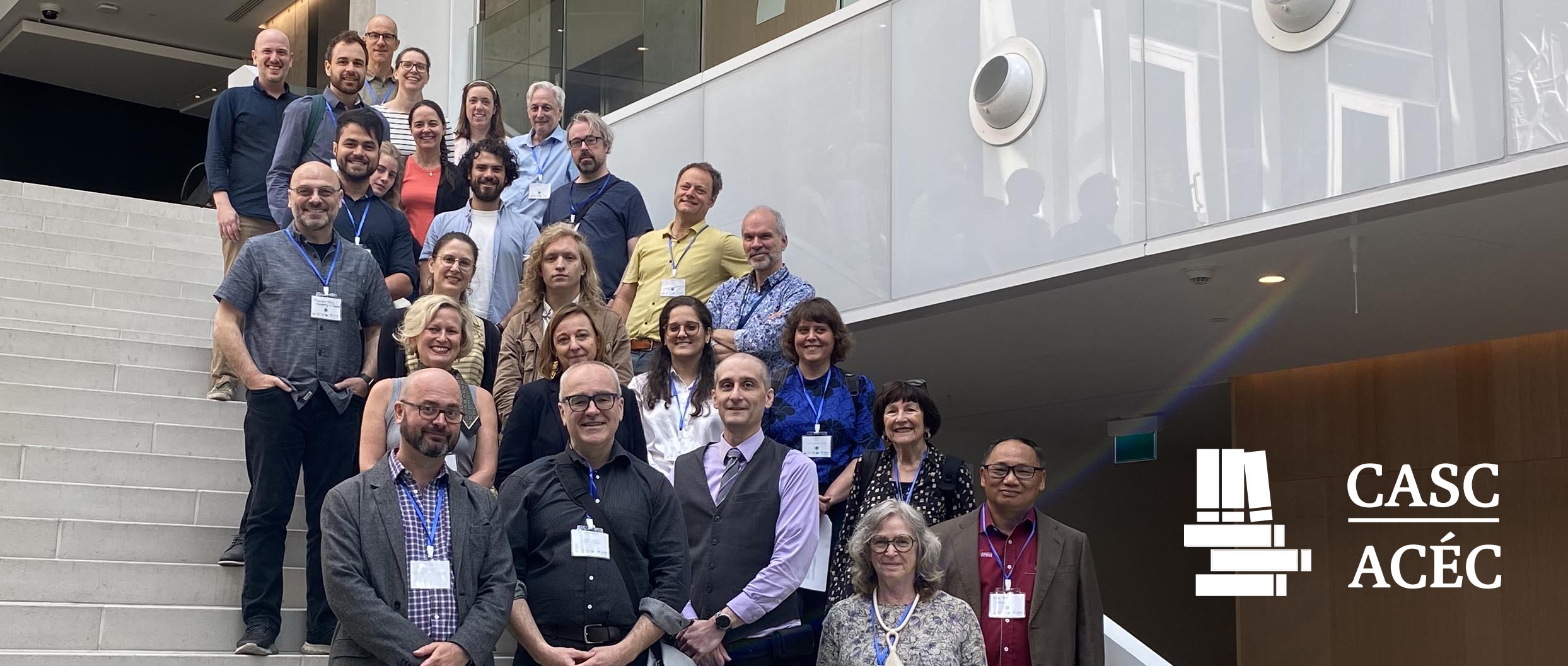CASC Conference 2023
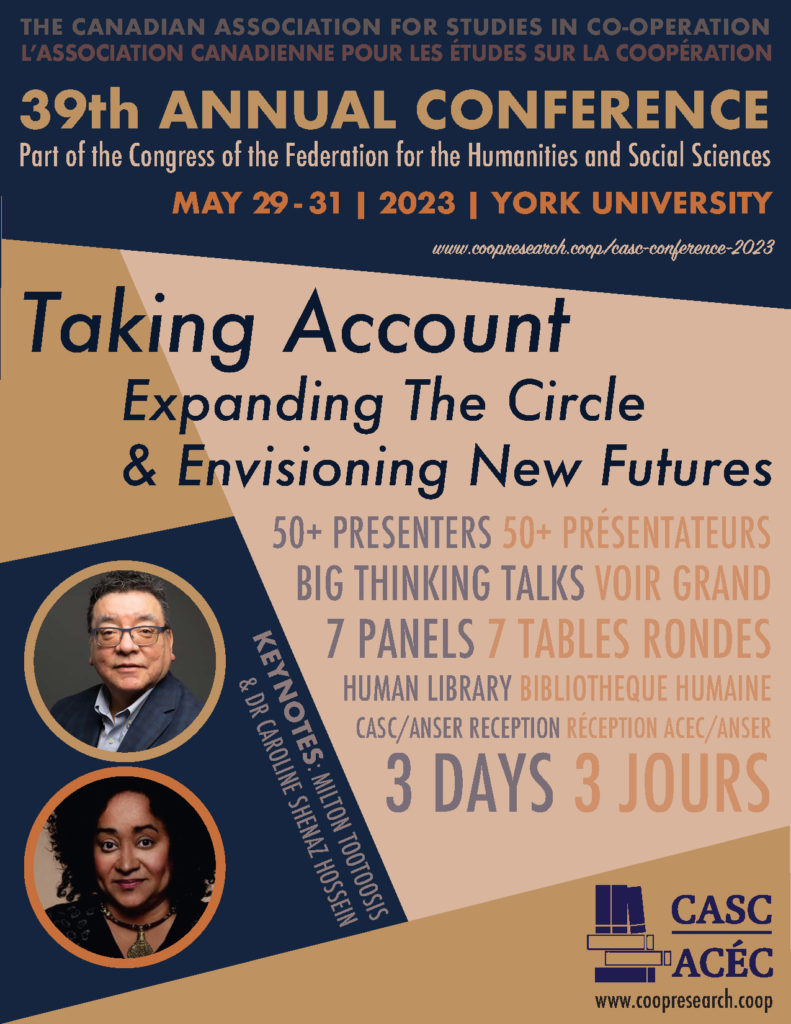
We are looking forward to seeing you in person at next year’s CASC Conference at Congress.
York University will host the 2023 Congress of the Humanities and Social Sciences, in partnership with the Federation for the Humanities and Social Sciences. Congress is the largest academic gathering in Canada, and one of the largest in the world. The event in 2023 will be the 92nd annual edition, bringing together around 70 academic associations from humanities and social sciences disciplines, including literature, history, theatre, film studies, education, music, sociology, geography, social work and more.
REGISTER FOR CONGRESS – EARLY BIRD REGISTRATION ENDS MARCH 31
Notes:
1. During the registration process, you will be asked to register first for Congress and then specifically for the CASC portion of congress. Attendees as well as presenters must register for both.
2. Registration for the CASC conference includes your annual CASC membership. Therefore, when you register for the CASC portion of congress, please indicate that you are a member.
2. All fees for BIPOC students are waived.
4. Registration as a Community member DOES NOT give you access to the CASC conference. Community members DO have access to BIG THINKING and all OPEN EVENTS.
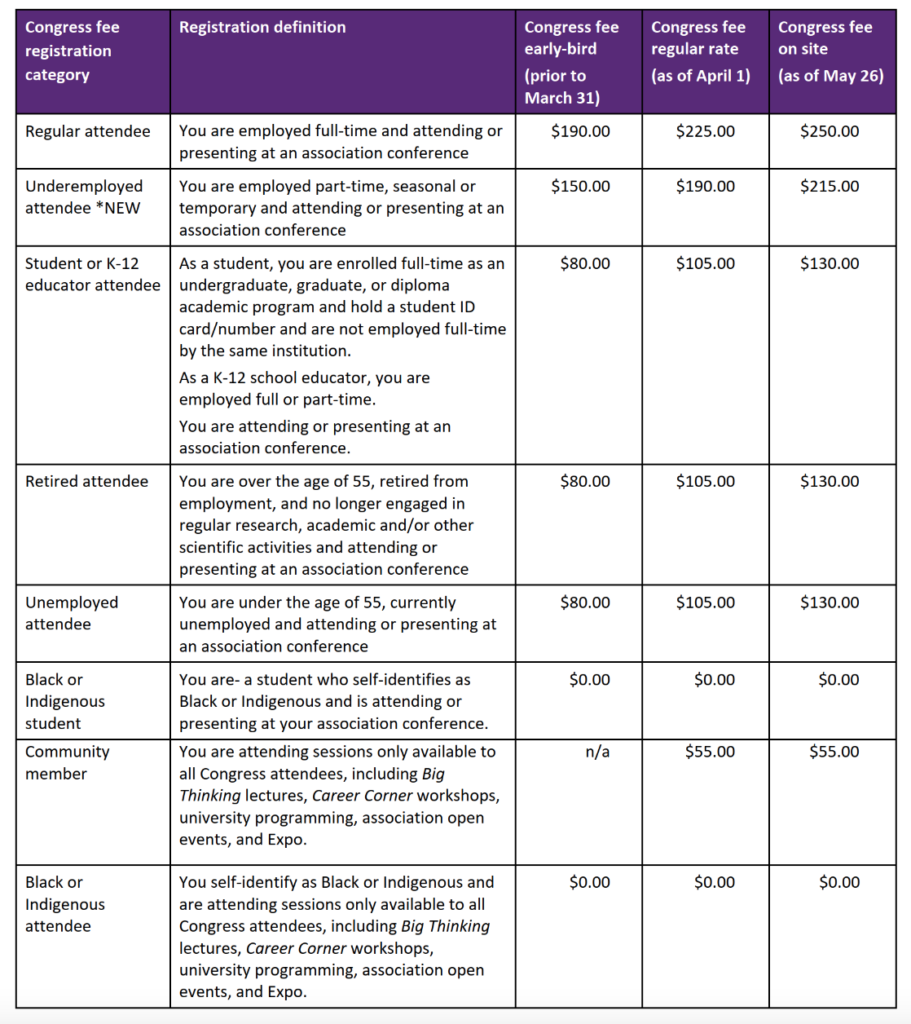
We are excited to announce the CASC Keynotes for Congress 2023:
Mr. Milton Tootoosis, Chief Economic Reconciliation Officer, Saskatoon Regional Economic Development Authority, Saskatoon, Saskatchewan
Dr. Caroline Shenaz Hossein, Associate Professor of Global Development, Interim-Director of the Institute for Inclusive Economies and Sustainable Livelihoods, University of Toronto Scarborough, Toronto , ON
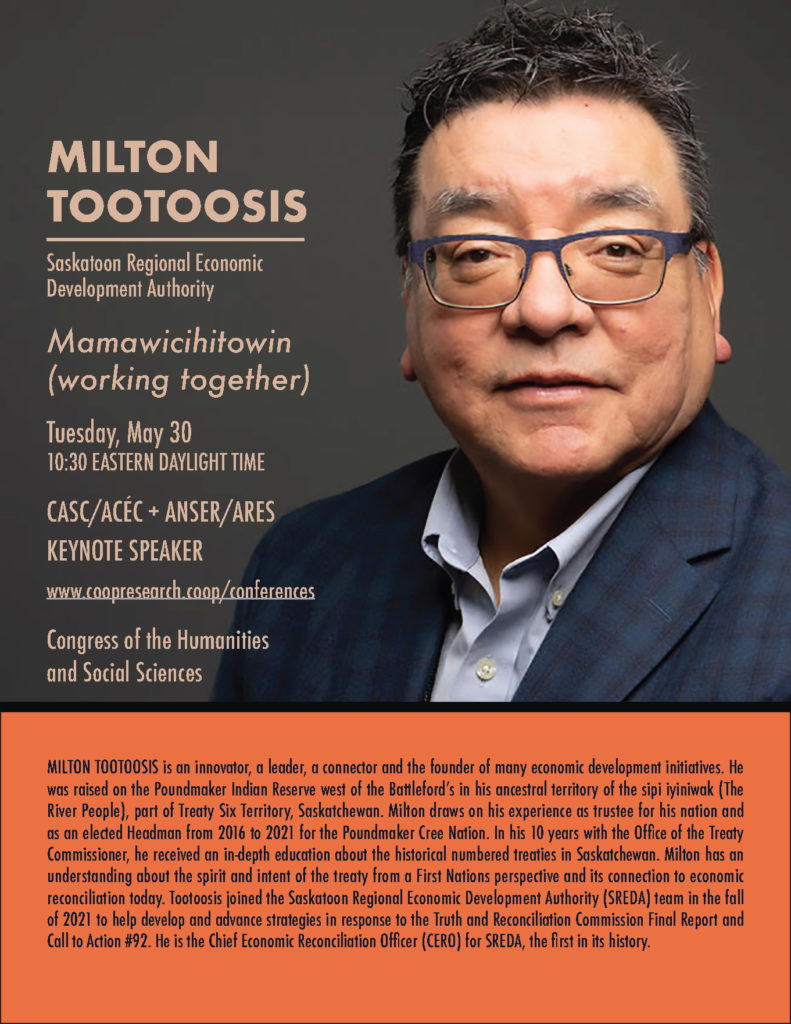
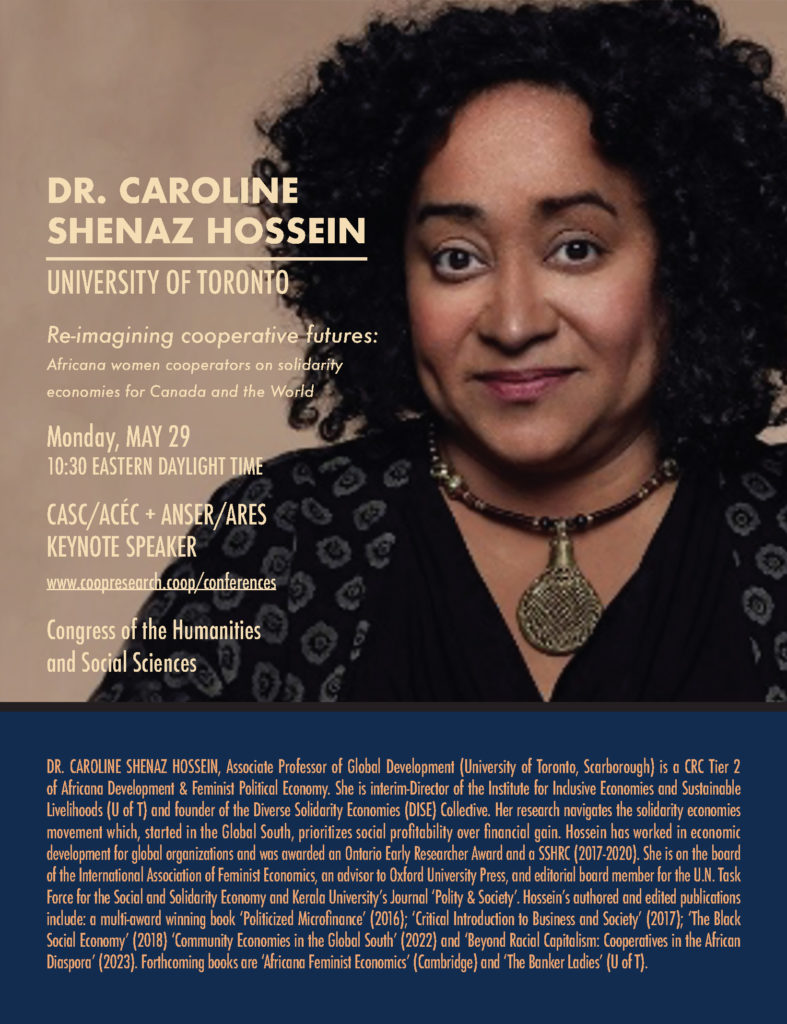
THEME
The third decade of the twenty-first century has brought us into unprecedented times. An unrelenting global pandemic, protests for racial justice, and escalating climate disasters have heightened our awareness of the urgent need for collective action to help us create a more equitable and sustainable world. The lessons from Black Lives Matter, Idle No More, the Truth and Reconciliation Commission, and the Inquiry into Missing and Murdered Indigenous Women and Girls, have been joined by new lessons, new reckonings about what is needed to live in non-hierarchical relationships that can truly honour our human differences, while protecting the land, water and air we all need to live together.
In the theme, “Reckonings and Re-Imaginings,” we invite the Congress community to pause and reflect on the lessons we have learned, but also to begin the work of imagining and enacting the terms under which we might create a radically different world. What might it mean for us to commit to knowing and caring for each other across our differences, understanding that the world we want to live in tomorrow is dependent on the action we take together today? Can we re-imagine a new set of social relationships grounded in decoloniality, anti-racism, justice, and preservation of the earth? This invitation for both reflection and action requires a genuine investment in the project of learning and growing, a willingness to participate in active and meaningful co-engagement, and a commitment to exercising patience and care in doing the hard work of changing belief systems and the world.
In Congress 2023, we respond to this call for reflection and action by centering the experiences, knowledges and cultures of Indigenous and Black communities as valuable and critical modes of thought fundamental to the realization of racial and climate justice. In a deepened commitment to the United Nations’ sustainable development goals (SDGs), we understand the problems of food insecurity, gender disparities, racial inequities, forced migration and others as linked to an accelerating climate disaster, and Black and Indigenous futurities. What might we produce when we reckon with and re-imagine climate mitigation strategies and the UN SDGs through the lens of racial justice and Indigenous resurgence? In centering these conjoined global challenges and possibilities, we are seeking to shift the culture of Congress, to create meaningful space for diverse viewpoints and a profound reckoning with white supremacist forms of knowledge production, while making visible decolonial, anti-racism, queer, and critical disability perspectives. Hosted by one of Canada’s most diverse universities, Congress 2023 welcomes scholars and student researchers, artists, activists, and public intellectuals—including those who have not previously seen themselves or their work reflected in Congress—to engage in deep interdisciplinary scholarly and artistic engagement, and to join this crucial conversation about how we can re-imagine and change the world for the better.
